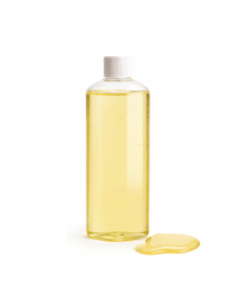Sorbitan Oleate (Monemul 80Hi) – 1kg
R131,56
Sorbitan Oleate (Monemul 80Hi) – 1kg – helps blend water-based and oil-based ingredients together, creating stable emulsions in cosmetics
15 in stock
Sorbitan Oleate (Monemul 80Hi) – 1kg
Key Features: Sorbitan Oleate (Monemul 80Hi)
-
Emulsifying Agent:
Sorbitan oleate blends water-based and oil-based ingredients, creating stable emulsions essential for creams, lotions, and serums. It ensures a smooth and uniform application, providing long-lasting product stability. -
Surfactant Properties:
As a surfactant, sorbitan oleate reduces surface tension, allowing ingredients to mix more easily. This contributes to better cleansing properties in facial cleansers and body washes, helping to remove dirt, oil, and impurities effectively. -
Stabilizing Formulation:
Sorbitan oleate prevents ingredient separation, keeping products consistent over time. It’s ideal for formulations with multiple active ingredients or those prone to phase separation. -
Moisturizing Benefits:
While not a primary moisturizer, sorbitan oleate helps lock in moisture by forming a protective barrier, preventing water loss and maintaining hydration levels on the skin. -
Improved Skin Conditioning:
It enhances the texture of products, making them smoother and easier to apply. This contributes to a better user experience and overall product feel. -
Compatible and Safe:
Sorbitan oleate is non-comedogenic, meaning it’s unlikely to clog pores or cause acne. It is suitable for most skin types, though individuals with sensitive skin should patch test before use.
Benefits:
-
Enhanced Stability:
It helps create long-lasting emulsions and prevents separation in complex skincare formulations. -
Improved Cleansing:
By acting as a surfactant, it improves the ability to cleanse while maintaining skin moisture. -
Non-Irritating:
Sorbitan oleate is gentle and compatible with most skin types, including sensitive skin. -
Versatile:
Works well in a wide range of formulations including creams, lotions, cleansers, and serums.
Sorbitan oleate is a versatile ingredient that enhances the stability, cleansing, and sensory properties of skincare products. Whether you’re formulating creams, lotions, or cleansers, Sorbitan Oleate (Monemul 80Hi) is a reliable choice to improve the quality and experience of your products.










